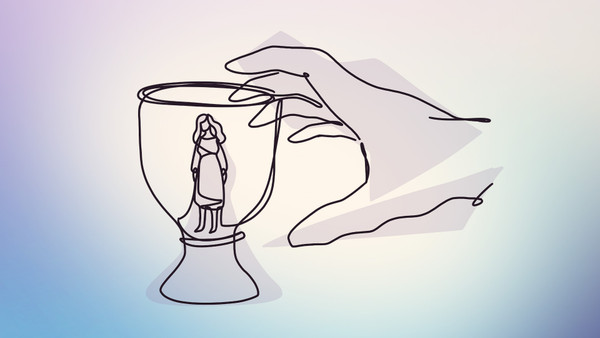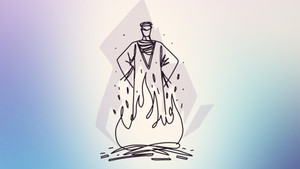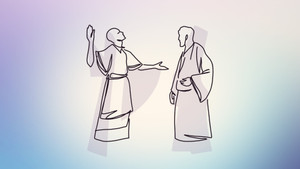

Matthew 5:29-30: Eye and Hand Mutilation
Watch a short animated video commentary explaining the meaning behind Jesus' demand to gouge out your eye and cut off your hand if they cause you to sin.
Downloads
Sermon on the Mount Visual Commentaries

Matthew 5-7: Sermon Overview
Watch a short animated video commentary that explains the meaning of Jesus' Sermon on the Mount teachings in the Gospel of Matthew.

Matthew 5:3-16: Beatitudes
Watch our second visual commentary on the Sermon on the Mount in Matthew chapter 5 and learn the meaning of the Beatitudes in the Bible, like "Blessed are the poor in spirit, for theirs is the Kingdom of Heaven."

Matthew 5:17-20: Righteousness and Jesus’ Bible
Watch a short video commentary on Matthew 5:17-20 that explains Jesus' perspective on the Torah and the Prophets in the Sermon on the Mount.

Matthew 5:21-22: Murder and Contempt
Watch a short animated video commentary explaining the wisdom Jesus reveals within the command "Do not murder" in Matthew 5:21-22.

Matthew 5:27-28: Adultery and Lust
Watch a short animated video commentary explaining the wisdom Jesus reveals within the command "Do not commit adultery" in Matthew 5:27-28.

Matthew 5:29-30: Eye and Hand Mutilation
Watch a short animated video commentary explaining the meaning behind Jesus' demand to gouge out your eye and cut off your hand if they cause you to sin.

Matthew 5:33-37: Oaths and Truth-Telling
Watch a short animated video commentary that explains what Jesus means in Matthew 5:33-37 when he says “let your yes be yes, and your no be no”.

Matthew 6:1-4: Generosity and the True Reward
Watch a short video commentary on Matthew 6:1-4 that explains why Jesus warns his followers about doing the common religious practices of his day in public.

Matthew 6:9-13: The Prayer of Jesus
Watch a short, animated video that explains the Lord's Prayer in the Bible and understand the meaning of Matthew 6:9-13.

Matthew 6:19-23: True Wealth and Generosity
Watch a video that explores key Bible verses where Jesus talks about how our relationship to wealth and possessions affects our relationship with God.

Matthew 7:1-2: Don’t Judge
Watch a short animated video commentary that explains what Jesus means in Matthew 7:1-2 when he says “do not judge, so that you will not be judged."

Matthew 7:6: Pearls Before Pigs
Watch a short animated video commentary that explains what Jesus means in Matthew 7:6 when he says “don't throw your pearls in front of pigs."

Matthew 7:12: The Golden Rule
Watch a short video commentary that explains what Jesus means in Matthew 7:12 when he says "Do unto others as you would have them do unto you."

Matthew 7:24-27: The Two Houses
Watch a short animated video commentary that explains the meaning of Jesus’ parable of the two houses built on rock and sand.